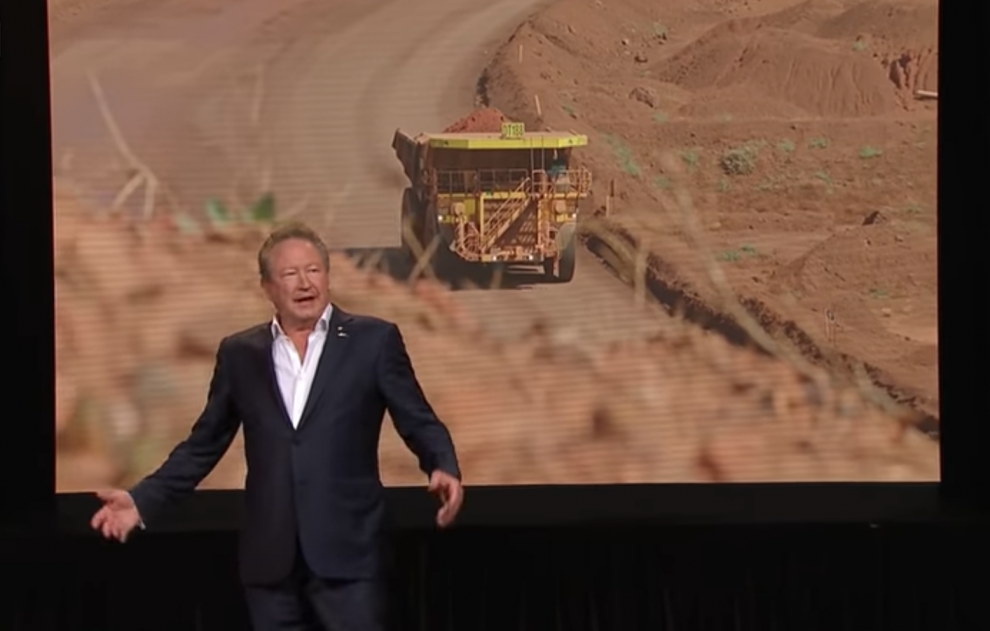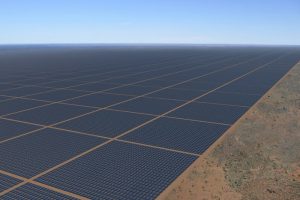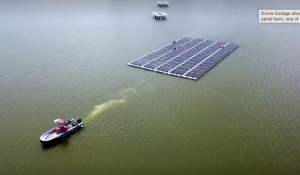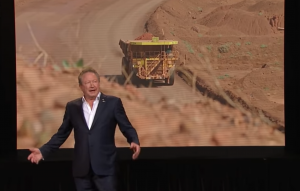Australian mining magnate Andrew Forrest is backing a quantum computing venture in the US to boost his goal of producing cheap and abundant green hydrogen.
The founder of Fortescue Metals Group and Fortescue Future Industries (FFI), Forrest has agreed to support Qlimate, a quantum computing initiative based in Silicon Valley dedicated to help mitigate climate change.
Forrest, who is Australia’s richest man with a net worth of $18 billion, is seeking to create the world’s top green energy group, including cleaner ways to make steel.
Speaking on the sidelines of the World Economic Forum in Davos, the billionaire said Fortescue had agreed to be a funding research partner of the Qlimate initiative, backed by Silicon Valley-based PsiQuantum, which aims to build the world’s first utility-scale quantum computer this decade.
FFI said this was the first step towards a broader strategy to develop algorithms solving computational bottlenecks in modelling Proton Exchange Membrane (PEM) technology and pulse electrolysis – which enable more efficient green hydrogen production – with a view to building and scaling quantum computing-enabled green hydrogen ventures.
“The Qlimate initiative with leading quantum computing company PsiQuantum is critical to lowering emissions through green energy production, and this partnership, through greater knowledge, will help to achieve that faster, Forrest said.
“PsiQuantum’s fault-tolerant quantum computer could be a leading light in technology for green hydrogen, and FFI as a first mover in green tech will help make it happen.”
ALSO SEE: Fortescue Seeks to Turn US Coal Mine into Green Hydrogen Hub
‘Getting to Net Zero Faster’
Jeremy O’Brien, co-founder and CEO of PsiQuantum said: “We are delighted that FFI shares our vision and is willing to take ambitious steps towards delivering some of the most promising decarbonisation tools for potentially taking years off the path to net zero – helping the world to get back onto the target 1.5°C trajectory.
“Through this joint effort, we expect to improve the efficiency of green hydrogen electrolysis and significantly decrease production costs, helping build a viable green hydrogen economy.
“Given the transformational nature of this type of computing, not pursuing it is a bet that industry can’t afford not to make.”
Transportation and high costs have so far been the main hurdles to green hydrogen rivalling fossil fuels but Forrest, is betting that quantum computing will provide better solutions.
“Liquid hydrogen has the same degree of challenges that the natural gas industry had around this time a few decades ago,” Forrest, who this month returned as executive chairman of the world’s fourth-largest iron ore miner, said.
“Unlike [liquefied natural gas], which is 95% methane already, we can do anything with hydrogen. We can turn it into steel, turn it into fertilisers,” Forrest added.
Fortescue last year set out a plan to become carbon neutral by 2030, bringing forward the target by 10 years as it aims to start producing green hydrogen as soon as 2023.
Quantum Computing Net Zero Initiative
PsiQuantum was founded in 2016 by Australian-British professor Jeremy O’Brien and other academics to build the world’s first commercially viable quantum computer.
O’Brien said that once PsiQuantum builds the computer it will be able to help solve some of the most challenging problems facing mankind, including in areas of chemistry.
Like the partnership with Fortescue on hydrogen, PsiQuantum has worked with German carmaker Mercedes to study battery chemistry as the world switches to electric vehicles.
PsiQuantum has raised $665 million of funds to date, including from fund manager BlackRock, Microsoft’s venture fund M12 and Singapore’s Temasek, according to its website.
Forrest did not say how much funding Fortescue was contributing to the Qlimate initiative. He has previously called on rivals to speed up energy transition and use green hydrogen.
“That would have to be the beginning of the end of global warming,” Forrest said.
“It is a very big vision and I have not received push back. People have been receptive,” he said when asked about feedback from Fortescue’s competitors.
• Jim Pollard with Reuters
ALSO on AF:
Gaines Quits Australia’s Fortescue as Green Transition Looms
Australia’s Fortescue and India’s JSW Energy in Hydrogen Projects Tie-Up
‘Green hydrogen’ hailed as a way to clean up the steel industry
























